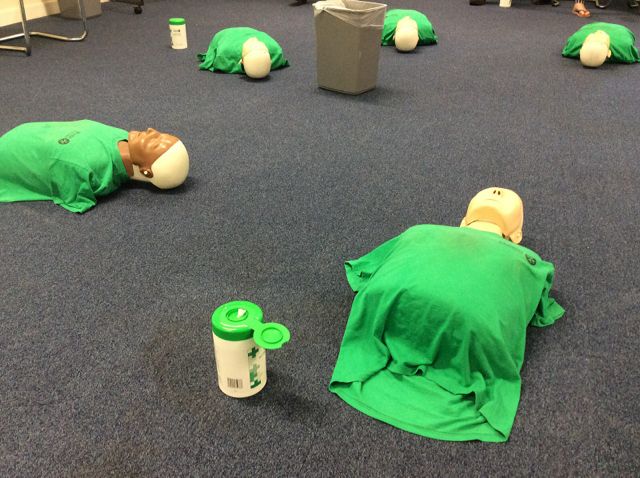Yesterday I went on the excellent St John’s Ambulance 1-day emergency first aid at work course. It was a real eye-opener: it made me realise just how many of the voluntary and fun activities that I go to are made possible by having first-aiders on site.
I was of course also interested in the way it was taught. This is not meant to be the land ambiguity; little room here for interpretation. This training gives clear procedures to help save people’s lives. Any crudeness or bluntness to the rules is offset by the huge potential benefit of saving someone’s life.
The thing I found particularly difficult was doing the treatment with the hands at the same time as doing the patter. One for the science communicators!
The course relies heavily on acronyms to help you remember procedures, and I admit that despite very clear instruction I was on acronym overload by lunchtime. The course has summative assessments built in throughout so that by the end you have an assessment-based qualification. I am however curious about the drop-off rate in retention of that knowledge. For example, I am certain that many people will remember the DR ABC stuff, but other points will drop away.
Obviously some retention is better than nothing, and these courses are clearly doing a great deal to save people’s lives, but I wonder if some delayed assessment, say a week later, using a mobile phone app would be a better basis for the qualification?
That said, St John Ambulance have released an app that gives you back up information, and you do get a pocket reference card – but do you really want to be referring to those in an accident?
I for one know that I will forget much of the content unless I practise, so those of you that know me don’t be surprised if I ask you to lay down and pretend to be unconscious!



Leave a Reply